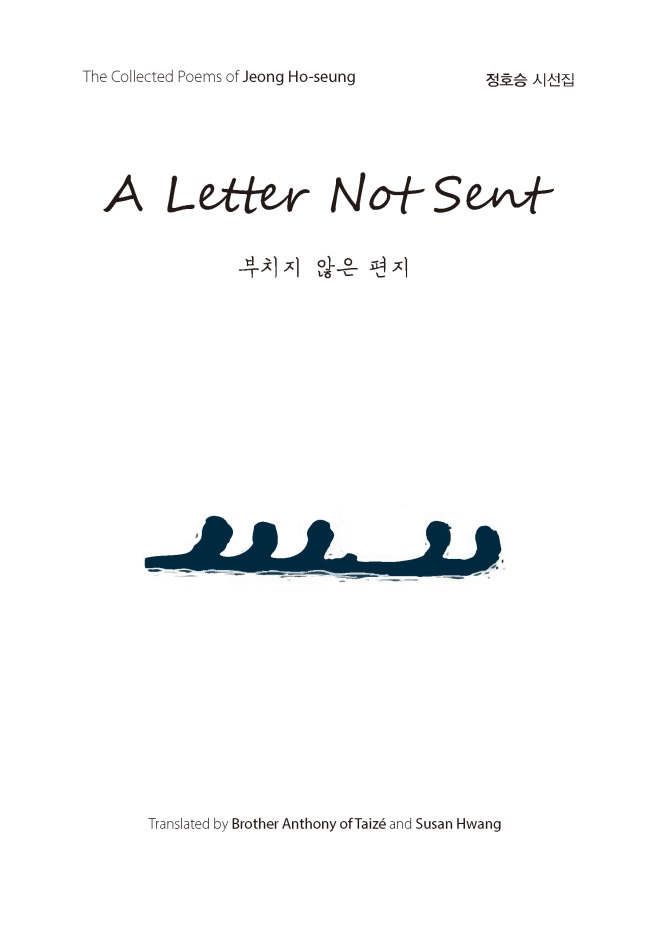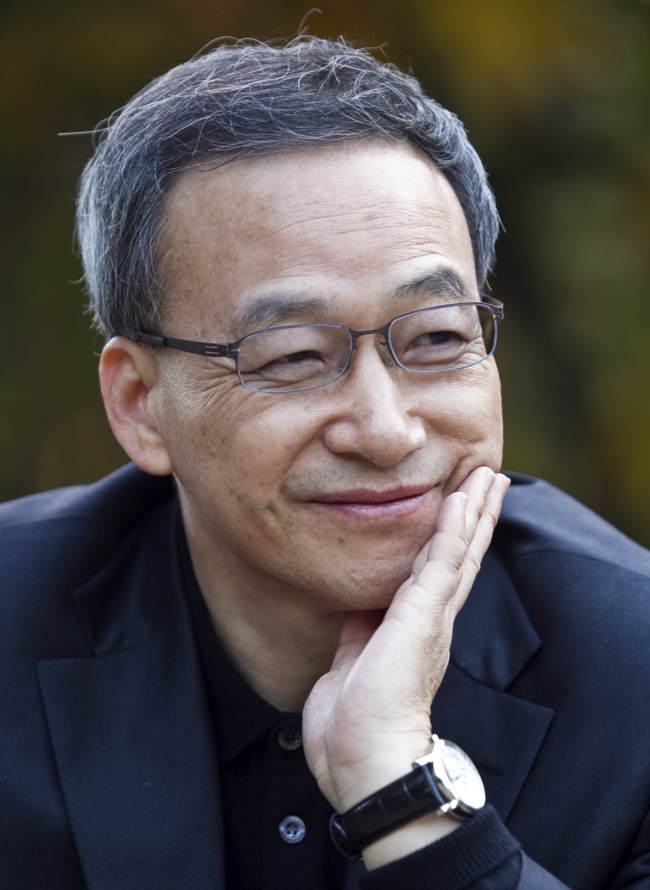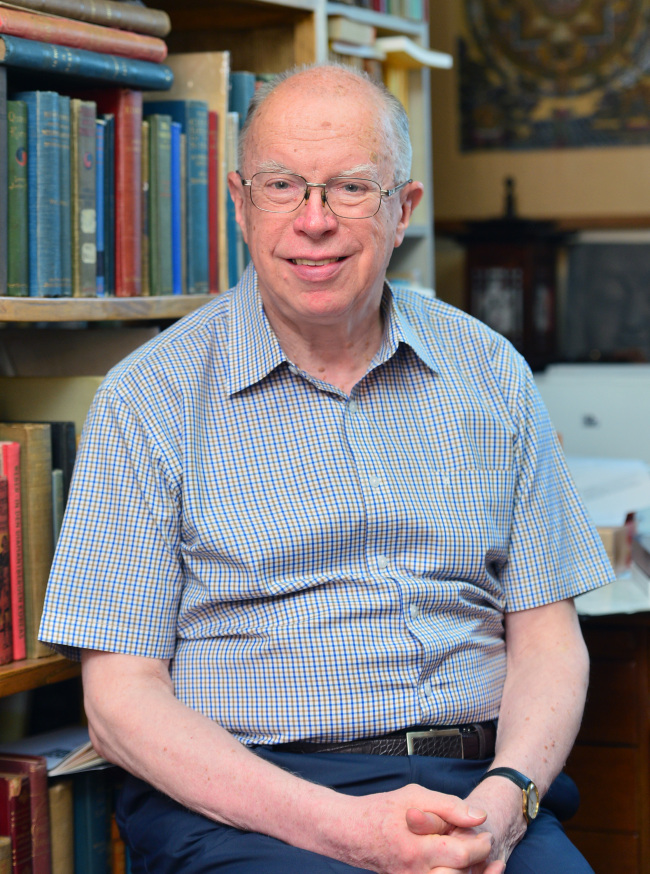A collection of works by renowned poet Jeong Ho-seung, often referred to as “Koreans’ favorite poet,” has been translated into English for the first time.
Brother Anthony, professor emeritus at Sogang University and a naturalized Korean originally from Britain, and Susan Hwang, who studies Korean literature at the University of Michigan, cotranslated the collection titled “A Letter Not Sent.” The book is published by Seoul Selection.
 |
"A Letter Not Sent," the collected poems of Jeong Ho-seung, translated by Brother Anthony (Seoul Selection) |
“The book happened by chance,” Brother Anthony told The Korea Herald, adding that poet Jeong is a longtime acquaintance. “But of course we had the global audience in mind. I thought it was a shame that only those who spoke Korean could encounter (Jeong’s) wonderful poems.”
The compilation contains 108 poems. Another volume, with an additional 120 poems by Jeong translated into English, will be published in September, Brother Anthony said.
“Everyone is a poet,” Jeong says in the foreword to the new anthology that was compiled together with Brother Anthony. “Yet some people write poetry, while others do not. ... I am writing the poems that other people should have written, instead of them.
“Readers will be able to find their own lives in these poems,” he adds.
Critics and readers have described Jeong’s body of work as deeply moving through simple language. Recurring themes and motifs include nature, the joys and sorrows of life and the paradoxes of human existence. Attesting to the popular appeal of his works, some 60 poems have been turned into pop tunes and art songs.
The compilation includes the poet’s representative works such as “Myeongdong Cathedral,” “The People I Love,” “The Road to Sorrow” and “A Spring Path.”
 |
Poet Jeong Ho-seung (Seoul Selection) |
Brother Anthony’s translations strive to stay as faithful as possible to the original poems’ rhythm and vocabulary, while also making them readable in English and relatable to an international audience.
“(Jeong’s) delicately nuanced treatment of such vital themes as desire, love, beauty, time, pain, loss and death has long made him a favorite among readers,” write Brother Anthony and Hwang on the poet.
“It is our hope that many readers who know no Korean will now discover the special qualities which have made him so beloved,” they note. “The wisdom embodied in the collected poems of (Jeong) is universal in its scope, leading readers toward an awareness of the metaphysical, invisible dimensions of human existence, where faith is rooted.”
Brother Anthony and Hwang added hopes that Jeong’s poems would “speak clearly to the hearts of many readers, telling them simply that nothing matters but love.”
 |
Brother Anthony at his study in Sinchon, Seoul on June 17 (The Korea Herald/Yoon Byung-chan) |
Jeong, born in 1950 in Hadong, South Gyeongsang Province, and raised in Daegu, won several awards, including the So-wol Literary Prize in 1989. After majoring in Korean language and literature at Seoul’s Kyung Hee University, Jeong began writing for literary magazine “Anti-Poetry.” In 1982, he published his first novel, “A Memorial Service for the Departed.”
On Aug. 18-19, Jeong will be holding a poetry event with readers in Daegu. Participants and the poet will take a stroll around the city’s scenic sites, exploring the setting and people that influenced Jeong’s works.
By Rumy Doo (
doo@heraldcorp.com)







![[Exclusive] Hyundai Mobis eyes closer ties with BYD](http://res.heraldm.com/phpwas/restmb_idxmake.php?idx=644&simg=/content/image/2024/11/25/20241125050044_0.jpg)
![[Herald Review] 'Gangnam B-Side' combines social realism with masterful suspense, performance](http://res.heraldm.com/phpwas/restmb_idxmake.php?idx=644&simg=/content/image/2024/11/25/20241125050072_0.jpg)

